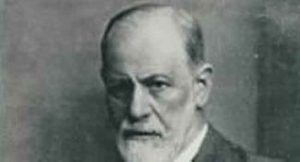Calvin S. Hall Jr. Dream Theory Explained

Analysis of content, which was popularized by Calvin S. Hall Jr. (1909-1985), is the emphasis of Calvin S. Hall Jr.‘s (‘09-1985) research on dreams.
In the 1940s, Hall began a systematic study of dreams that would last for the next three decades and result in a number of theoretical, methodological, and empirical contributions. A Primer of Freudian Psychology (1954) and Theories of Personality (1957), the latter of which was co-authored with Gardner Lindzey, were two of his best-selling expository works that he wrote in the 1950s. These works helped to establish an emphasis on personality within the field of psychology that would continue for the next two decades. After that, in 1973, he published A Primer of Jungian Psychology as a follow-up to the primer he had previously written on Freud.
After completing his undergraduate degree in psychology at the University of Washington, where he also had the opportunity to intern with the renowned behaviourist Edwin Guthrie, Hall went on to pursue his PhD education in the field. Because he did not want to take the mandatory ROTC class at Washington, he decided to finish his undergraduate education at the University of California, Berkeley instead. At Berkeley, he received his Bachelor of Arts degree in 1930 after studying under the renowned purposive behaviourist Edward Tolman. He then continued his education at Berkeley as a graduate student under Tolman and Robert Tryon, earning his Doctor of Philosophy degree in 1933.
The most significant and influential work that Hall did at Berkeley demonstrated the inheritance of emotionality in rats. He did this by inbreeding the rats that exhibited either unusual fearfulness or unusual bravery when they were placed in the middle of a large circular table. (This test, which is still in use today and is known as the “open field” test, was most recently mentioned in an article published in the peer-reviewed scientific journal Cell in November of 2005.
The article announced the discovery that the deletion of a single gene can transform timid mice into fearless mice.) Within a few generations, he had two very distinct strains in terms of their responses to this predicament, and each strain was a product of a different generation. This work expanded upon his mentor Tryon’s earlier demonstration that rats could be bred to be good or bad at learning a maze. Tryon’s work was published in the journal Science.
The actual research conducted by Hall demonstrates that the dreams of groups of people from all over the world are more similar to one another than they are dissimilar, despite the fact that there are variations that can be explained by the cultural differences among these groups. These differences correspond with waking concerns, emotional preoccupations, and interests, suggesting what Hall referred to as a “continuity” between dream content and waking thought.
At the same time, he discovered large individual differences in the frequency of dream elements. His research with dream diaries kept by a select few individuals over the course of several years or even decades revealed an incredible constancy in the dream content, despite the fact that there were certain alterations that were compatible with changes in the dreamers’ life in the waking world. In addition to the several scholarly works that he published on dreams, Hall is best known for penning two well-selling novels on the subject: The Meaning of Dreams (1953) and The Individual and His Dreams (1964). (1972). Both were very successful in terms of sales and inspired a great number of individuals to start dream journals.
According to Hall, dreams can be placed into one of five primary categories of one’s life
1. When we talk about our concepts of self, we are referring to the various or numerous roles that we play in our dreams.
2. The roles that other people take on in your dreams are examples of concepts of other people. Take into consideration the feelings you have toward them as well as the way you engage with them.
3. The environments and terrains of the dream are represented by the concepts of the world. Your perspective on the world can be inferred from the adjectives you use to characterize your dreamscape.
4. Your behaviour and the degree to which it is governed by impulses and punishment can be inferred from the concepts of impulses, prohibitions, and penalties.
5. The ideas of problems and conflicts are symbolic representations of the challenges, difficulties, and issues that you are currently dealing with in your waking life. These dreams are attempting to provide clarity and a solution to the problems you’ve been having.
Hall believes that you will be able to evaluate the content of your dreams and find your way into the deep workings of your unconscious mind if you make use of these five notions.
Recent Posts
Recent Articles

What Does It Mean To Dream About Tests or Examination?
Dream Meaning Of Tests or Examination "I Did Not Do Well In The Test" If you…

The Biblical Meaning Of Falling Teeth In Dreams And Its Spiritual Message
Dream Meaning of Falling Teeth "I Can't Stop Losing My Teeth!" The dreams th…

The Biblical Meaning Of Most Common Dreams About Snake
"I Was Bitten By A Snake!!" The snake is one of the most typical animals to a…

The Biblical Meaning Of Dreams About Being Naked And Its Spiritual Message
“I'm Naked!" You are going about your normal routine, such as going to scho…




